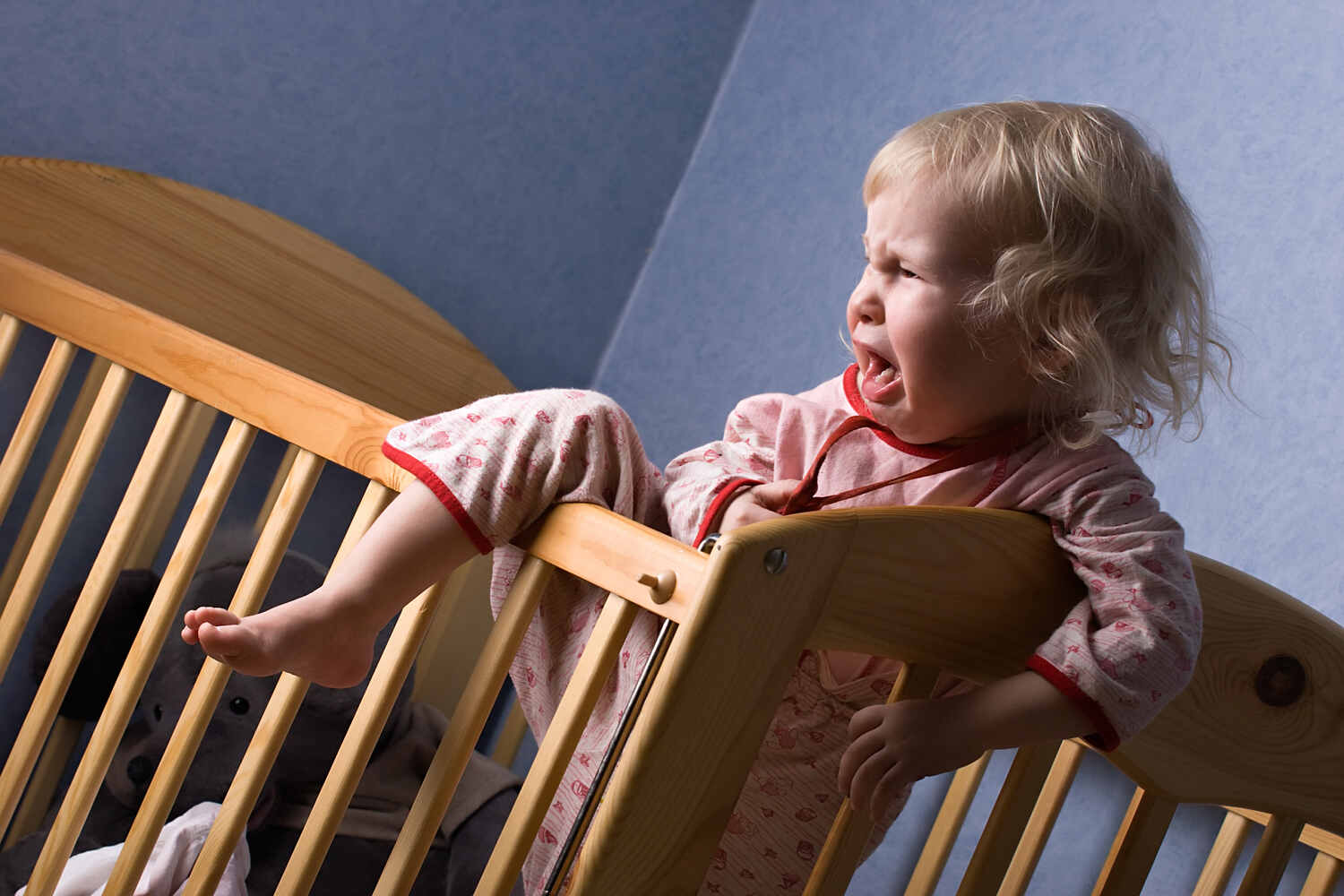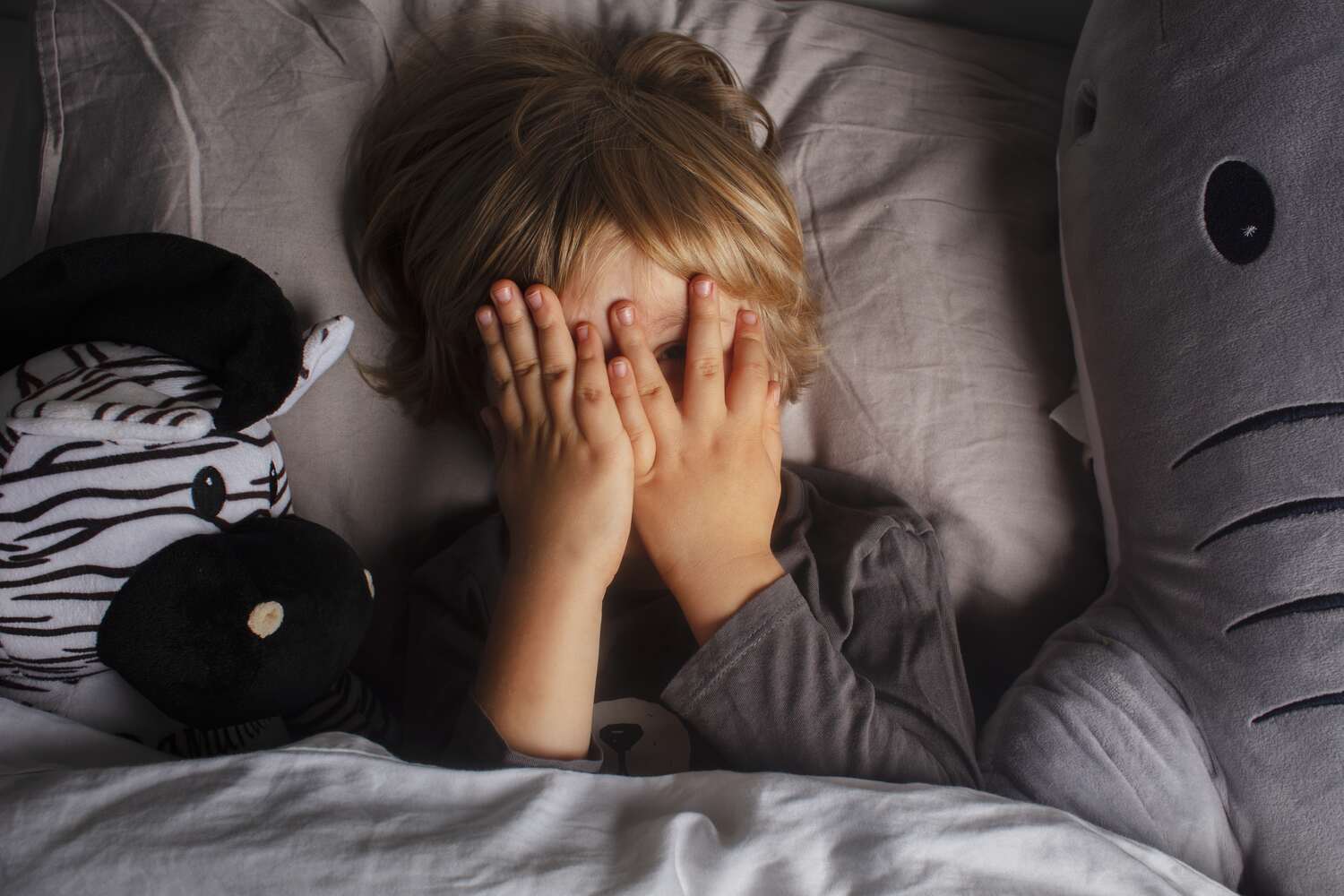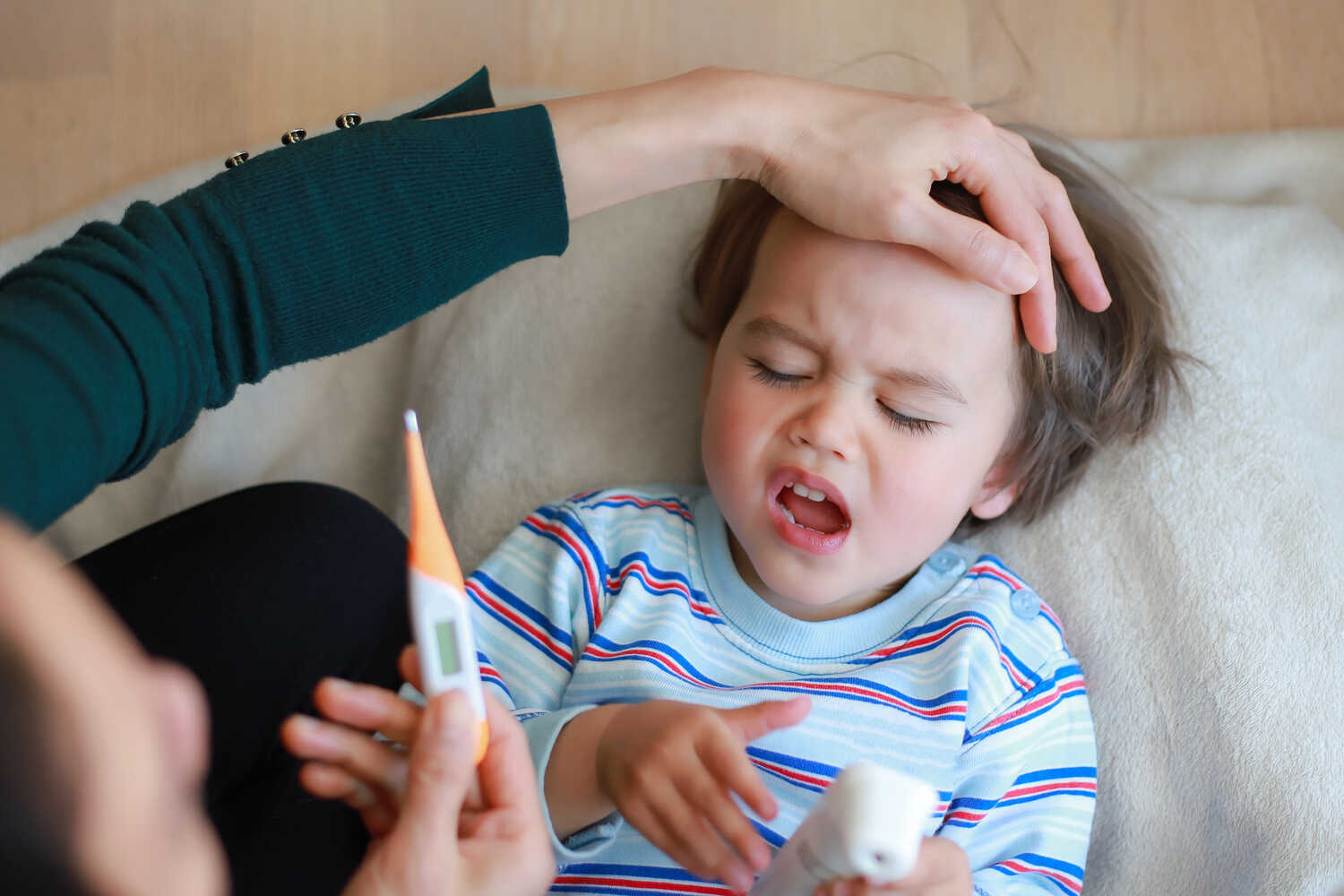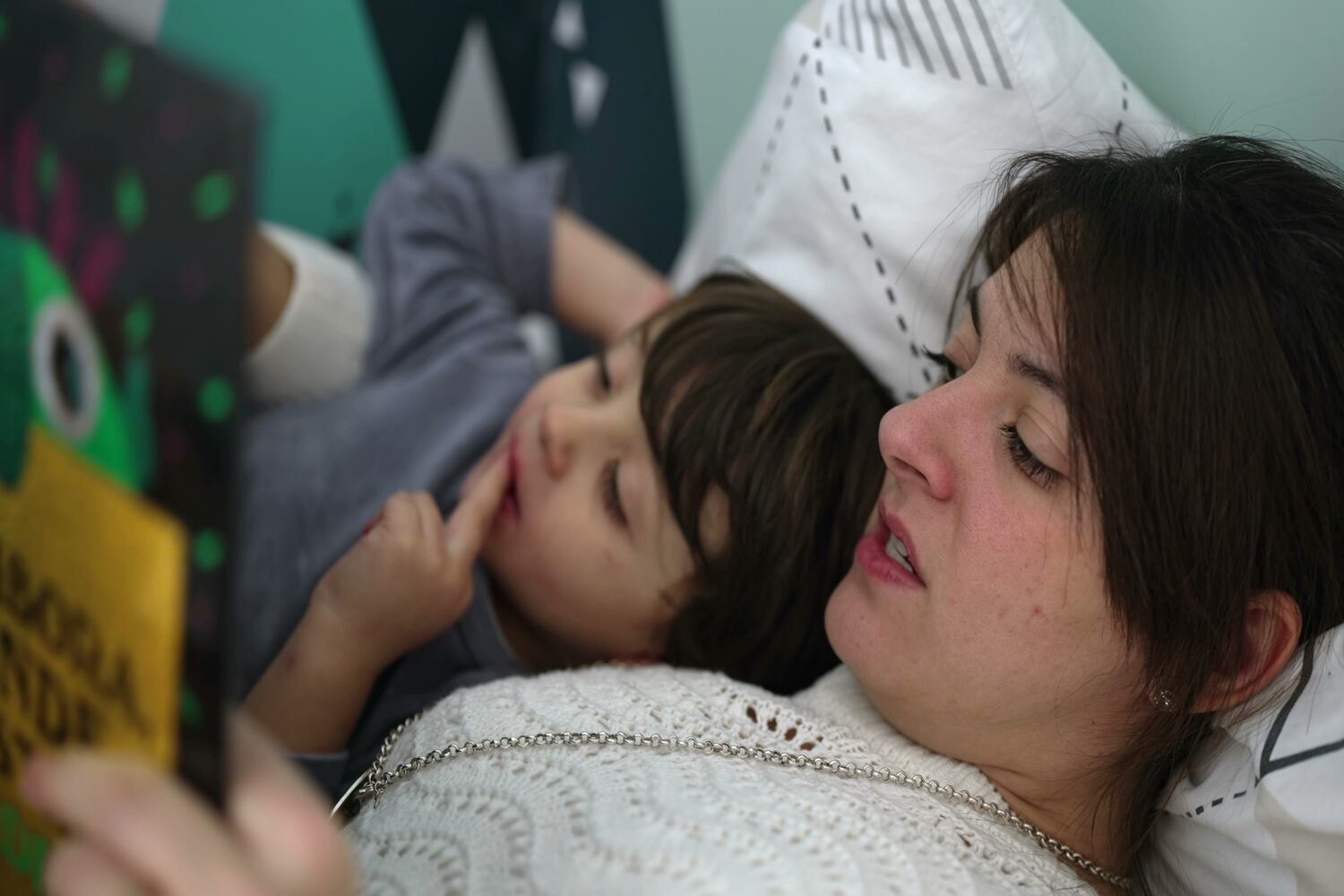
Ever wonder why your toddler starts crying at bedtime? There may be a reason or sometimes you cannot just figure out why they are crying at bedtime. But all this crying and tantrums at bedtime are sure to cause worried creases on your forehead. And, if you are facing this issue on a daily basis, then it is bound to leave you stressed and exhausted.
Sleep is very important for your toddler’s health. Getting enough sleep and tending to their needs is essential for their growth (1). But if it becomes a struggle to put them to bed then it’s a cause for worry. Read this article to find out the reasons behind why a toddler is crying at bedtime? And tips on how to deal with this situation.
In This Article
- Why do Toddlers Start Crying at Bedtime?
- Tips to Help You Deal With Your Toddler’s Bedtime Tantrums
- FAQ’s
Why do Toddlers Start Crying at Bedtime?
Toddlers may cry at bedtime due to several reasons. But since they may not be able to communicate clearly, this situation may lead to a lot of distress for both them and the parents. A few reasons why a toddler is crying at bedtime are-
1. Fear of The Dark

Toddlers get scared of the darkness (2). The stillness and quietness of the night instills unknown fear especially when it is dark around them. It is better to keep a night lamp on in their room.
2. Separation Anxiety

Toddlers face an unexplainable anxiety when they find themselves staying apart from parents or close people. Your toddler has an indefinable fear of losing their dear ones if they are away from them.
It is not easy to handle your toddler during this time though it is nothing to worry about. Toddlers often protest or wail or be visibly upset when you leave them. Try to make them understand that no matter whenever you leave them behind when you step out of home, you will always return to them. This can be done gradually and in a fun way too.
3. Not Tired

Bedtime may be too early for your toddler, and they show no signs of sleepiness like their typical cute yawns or rubbing of their eyes. Some toddlers simply fight sleep because they are a bundle of energy and want to still be awake although it is way past their bedtime.
Toddlers just want to put up a fight when you want them to go to bed. They resist their bedtime since they are not tired or weary which is a result of their daytime routine and activities. Even food habits like having a lot of sugary food will put them off sleep and watching TV just before bedtime hampers their sleep time.
4. Feeling Too Cold or Hot

Toddlers may just feel too cold or hot which is a reason why they may not fall asleep at their bedtime. Toddlers may feel warm because they have been crying, teething, or just playing or even resting in bed for some time. The heat in their body does not necessarily mean they have fever, you need to check their temperature to clear your doubts though.
5. Illness

Naturally toddlers seek more comfort when they are unwell. They are unable to sleep, and they need you to hold or rock them during their illness. It is a time where they call for extra feedings which may be an additional requirement to help them get through the night.
A very active toddler may be weary and tired when sickness wears them down but falling asleep will be an issue during bedtime. Sleep patterns become erratic when toddlers fall ill, but still offering a lot of comfort will ease them off their bout of illness along with the prescribed medicine.
Tips to Help You Deal With Your Toddler’s Bedtime Tantrums
Ever notice your little angel faced toddler suddenly throw a tantrum? Tantrums are as common as toddlers crying to get your attention. You never know when pampering is too much or too little when you witness your toddler throw a tantrum, especially during their bedtime.
1. Avoid Screen Time Before Bed

Sleep is very precious to every child, and it is in your hands to avoid things that will hamper their sleep. Screen time includes watching TV, playing on the phone and laptops (3). The same goes for video games. Screens affect your toddler’s sleep which in turn has an impact on the development and growth of your toddler (4).
2. Giving a Bath Before Bed

Give your toddler a warm water bath a few hours before bedtime. It helps to calm them and prepares them for a good sleep. Bath time should be relaxing and soothing for your toddler.
3. Soothing Music to Help Them Sleep

Playing some soothing music at bedtime will calm down your toddler and lull them to sleep. More and more parents find this practice a boon to make their otherwise energetic toddler get some sound sleep.
4. Establish a Bedtime Routine

It is good to establish a bedtime routine which your toddlers’ internal clock gets adjusted to (5). Keep the environment free of electronics and activities that are energetic. Choose a consistent slowdown after dinnertime so your toddler slips into the bedtime routine easily.
- Choose blackout curtains
- Try comfortable and weighted blankets
- Unwind with a bedtime story
- Give a few cuddles and snuggles
- Use soothing scents
Toddlers who have a good bedtime routine, sleep longer and are less likely to wake up during the night. Toddlers get enough rest which they badly need, and they wake up refreshed and ready for the new day. Each day you learn more and more about what your toddler likes and dislikes. Soon you will understand what bedtime routine works for your toddler. Getting your toddler to sleep is a challenge and creating a consistent bedtime routine will help both you and your toddler and with time incidences of toddler crying at bedtime will stop.
FAQ’s
1. At What Age do Bedtime Tantrums Stop?
Tantrums fade away when your toddler reaches the age of 4 or 5 years old. The intensity of your toddlers’ tantrums diminishes as they grow older. Toddlers communicate their discomfort or distress through tantrums which is perfectly normal and nothing to worry about.
2. What is The Peak Age For Tantrums?
The peak age for toddlers throwing tantrums is between 2 to 3 years. This phase passes as tantrums are part of their emotional development. Tantrums start when a toddler is around 18 months of age.
References
- Consensus Statement of the American Academy of Sleep Medicine on the Recommended Amount of Sleep for Healthy Children: Methodology and Discussion – [https://pubmed.ncbi.nlm.nih.gov/27707447/]
- Parents Helping Their Children Overcome Fear of the Dark – [https://www.apa.org/pubs/books/supplemental/pediatric-sleep-problems/Parents_Helping_Their_Children_Overcome_Fear_of_the_Dark.pdf]
- Television use and its effects on sleep in early childhood – [https://pubmed.ncbi.nlm.nih.gov/30987948/]
- Early Life Sleep Deprivation and Brain Development: Insights From Human and Animal Studies – [https://www.ncbi.nlm.nih.gov/pmc/articles/PMC9111737/]
- Benefits of a bedtime routine in young children: Sleep, development, and beyond – [https://pubmed.ncbi.nlm.nih.gov/29195725/]

